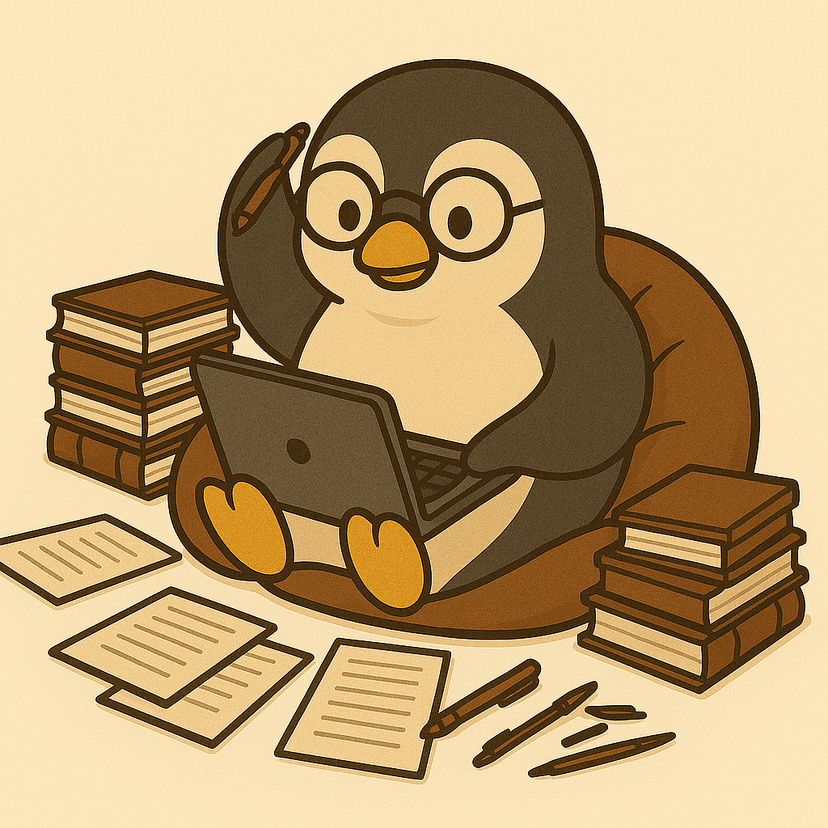5 things I wish I knew when I started a computer science MSc
Posted 7/24/2025

Without a doubt, studying for a master’s in computer science has been one of the most challenging things I’ve ever done, but also one of the most rewarding.
Here's the advice I wish I’d had when I started.
Get disciplined, get organised
Possibly the most valuable thing I've gained from this course is the ability to organise my time, stick to plans, and work even when I don't feel motivated.
When you're working on anything as difficult and complex as a master's degree, you need to plan your work, so you have a rough idea of how you're going to use the time available. When you're working to a deadline weeks away, you need to be disciplined enough to work without the stress of immediate accountability.
There are loads of way to approach this. Personally, I use Notion to create to-do lists, Gantt charts, and Kanban boards, and follow a version of the Pomodoro technique to manage my time. I've adapted techniques from agile project management to create daily and weekly sprint frameworks to help me manage my workload and adapt as things change.
Don't worry if a particular technique isn't for you, but keep experimenting until you find something that works.
Read the brief, loads
Seriously, read the brief for every assignment like it contains next weeks lottery numbers. Then read it again, and again. Then go back to it every week until you submit it.
Firstly, nothing would be more annoying than working all hours on a project, and losing marks because you didn't format it properly. Secondly, referring to be brief regularly helps prevent your work drifting into areas that are interesting but don't address what you've been asked to provide. And finally, looking at the requirements again with fresh eyes can spark new ideas and different perspectives that help you find solutions to problems that seemed insoluble a week ago.
Also, don't be afraid to ask questions if things don't make sense. Several assignment briefs I worked on were amended after students pointed out gaps, and the worst that can happen is you're told you need to work it out for yourself. If something is intentionally ambiguous, that's valuable information in itself.
Learn the fundamentals before getting specific
Sometimes, you'll just get stuck on a problem. You'll search papers and textbooks for days, and you won't find a solution. So where do you go? The answer is usually that it's a specific version of a general problem.
For example, on one assignment I was asked to use a search algorithm to align two datasets which were from the same period but aggregated at different timescales. I couldn't find any literature on this problem, and struggled to progress for weeks.
What I finally realised was that the specifics weren't that important. The task needed me to realise that that search algorithms require an objective function. Only then should I think about what specific objective function would be right for this particular task (minimising information loss, in case you're interested).
On any project, start by thinking about what general class of problem you're being asked to solve. Understand that inside out, and the solution to your specific case will probably come to you naturally.
If you keep trying, you can understand far more than you think
When I first started this course, I wasn't sure if I'd be able to finish it. I felt overwhelmed by maths textbooks, I couldn't understand the algorithms, and often I couldn't even work out what I was meant to be learning from a particular paper.
That was very disheartening at times, but I kept going. I read every paper five times. I looked for YouTube videos on topics I couldn't understand. I asked ChatGPT to explain things to me like I was 5 years old/a golden retreiver. Eventually it started to click.
I think the lesson is that some of this stuff is just really hard. I'm sure there are lots of people in tech who find it comes naturally, but if you're not one of them, don't let that make you think it's not for you. Just keep trying.
AI can help, but it can't do it for you
So obviously lots of very convincing people are telling us AI will soon do everything, and maybe they're right. Personally though, I've found it has serious limitations as a study aide.
As a rule of thumb, I think assistants like ChatGPT and Claude are brilliant at speeding up work that is time-consuming, but doesn't involve a lot of creativity or critical analysis. They're fantastic, for example, at summarising a difficult paper to help you understand the key arguments before you dive into it, or for checking your understanding of a tricky concept by creating practice problems. In particular, Claude's research mode is great at finding sources you might have missed on a topic.
However, you need to bring your own understanding to make these functions useful. You won't know if Claude's suggesting valuable sources if you haven't already researched the topic in-depth. You'll have no chance at solving higher order problems using ChatGPT if you don't put effort into understanding fundamentals, because you won't even know what questions to ask it.
As for getting it to do work for you - ethical issues aside - these tools are very good at giving you a confident answer to a difficult question, but it will fall apart under scrutiny. It will produce poor work, and you'll lose the chance to learn anything. So I'd advise against that 🙃